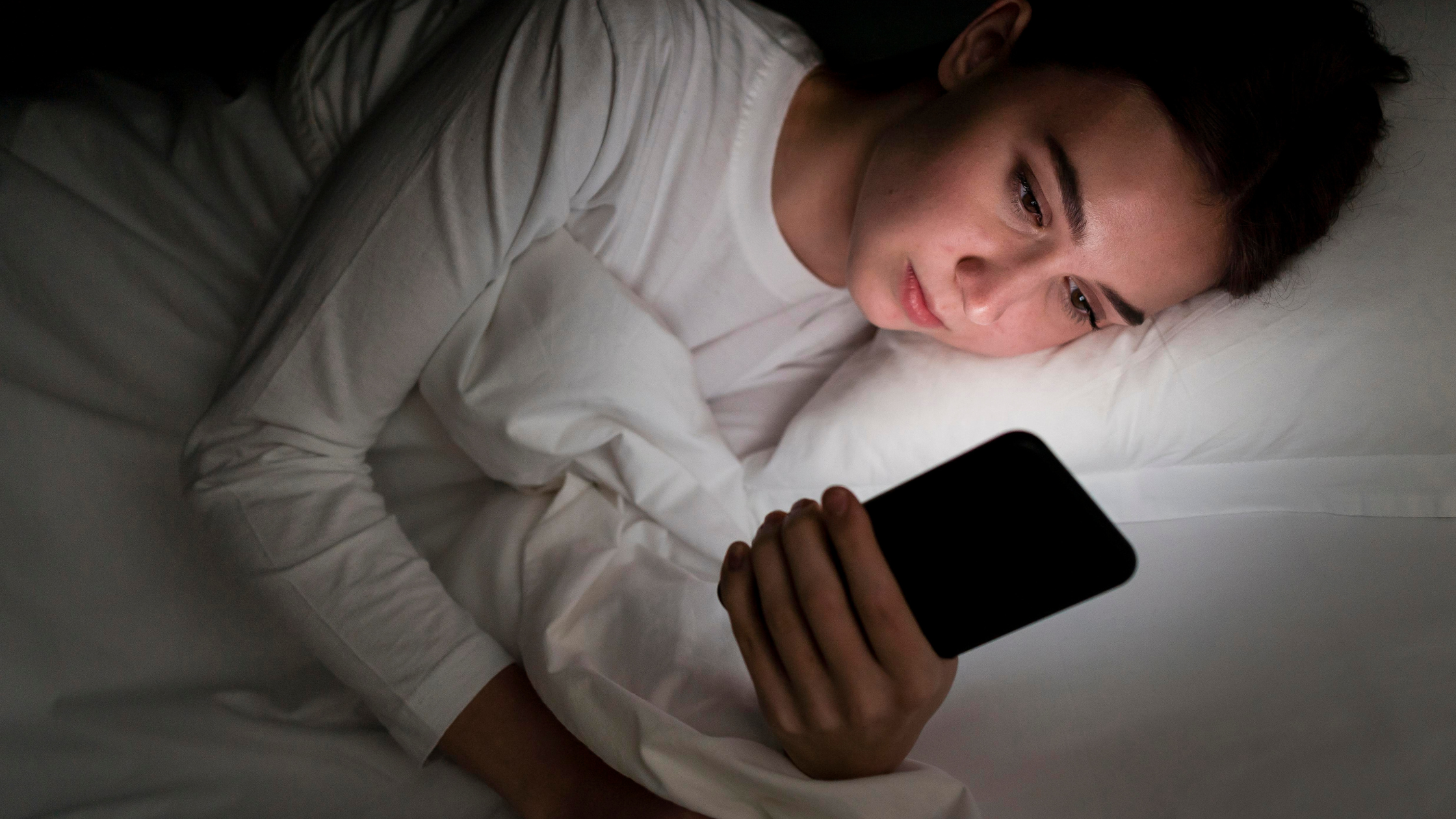
Three and four teenagers, and 96% of teens between the ages of 15 and 17 bring technology into the bedroom. This can lead to the average adolescent getting up to nine hours of screen time per day. The growing use of electronics between school, home and extracurriculars has its benefits. But it also has its drawbacks.
The effect of blue light can severely interrupt the flow of melatonin from the brain as its controlled by light. Melatonin is required to help the body prepare for bed. Blue light emitted from cell phones is very strong due to how small the screens are. Almost 67% of teenagers have a regular sleep schedule less than the recommended amount of time for their age group. Continue reading to learn more about how screen time can impact the development of insomnia in teens.
How screens affect the sleep-wake cycle?
The human sleep-wake cycle is known as the circadian rhythm. It is controlled by the eye's exposure to light. When it's bright outside, the body releases cortisol. Cortisol is the stress hormone that jumpstarts the other metabolic processes in your body. It is essential that you begin your day with a great boost of cortisol, and end it with very low levels. As your eyes begin to sense darkness, your brain stops secreting cortisol, and instead switches to melatonin.
Blue light from telephones and tablets can disrupt this cycle and continue the release of cortisol throughout the night. This inhibits their ability to get enough sleep to have a productive day. In addition to the issue with light, phones can also increase the risk of endless scrolling. The addiction to games, social media, and whatever else phones are used for can be too strong for teens to have the discipline to put it down for sleep.
Screens and Insomnia
Screen time has been linked to a number of insomnia symptoms in teenagers. Part of this is due to the melatonin delay that we talked about earlier. The other issue is the early start time that most teenagers have for school and/or work. A later bedtime just provides them with less time in bed than they need. Consistently late bedtimes with sleeping in on the weekends can disrupt the circadian rhythm.
Children and adolescents may be more susceptible to the effects of blue light due to the fact that their eyes take in more light than adults and older individuals. In addition to the light being disruptive, content on screens is often exciting or violent. These images can increase children's brain activity, making them too alert and activated to get a good night's rest.
This same effect of disrupted sleep can be seen with even passive noise like television sounds in the background. This is why children should not have any type of screens in their room.
As children age, the strict no-screens rule can be debated. Children become older and want more responsibilities and privileges. However, social media can negatively impact teens' mental health, increasing feelings of depression and anxiety. Unregulated use of phones in their rooms can lead to an increase of risky behaviors and negative or dangerous interactions.
Those with already pre-existing mental health or sleep problems may report an increase in the use of cell phones late at night. Research still seems to agree that increased use of screens can increase feelings of insomnia and anxiety. But, over 50% of teens who use technology in the bedroom suffer from sleep problems. Teens also consistently report worse sleep when they have a television or small screen in their room.
It's important for children to get an adequate number of hours of sleep as the consequences can be severe. First, and foremost to suffer is their academic performance. Children who are sleep deprived often have worse grades than those who get an adequate number of hours of sleep. Additionally, teens without sleep are at increased risk for depression and anxiety, moodiness, driving accidents, and overall less optimal functioning than their sleeping counterparts.
Tips for Adolescent Screen Time and Sleep
Teenagers need their screens. They are excellent resources for their academic pursuits, and it's important for their social development. There is not a recommended number of hours for teens as there is for younger children, however, the American Academy of Pediatrics urges the family to set up a personalized family media plan.
This plan includes clear limits on screen time, and time set aside for "non-negotiable" activities like sleeping, homework, spending time with family, meals, sports, and extra-curriculars.
Your teen should participate in creating their own guidelines as they do best with adhering to them when that happens. Together as a family, you all should sit down and come up with how the family is going to handle screens as a group. Some things to consider are:
- Boundaries for education and leisure time
- Age-appropriate bedtime
- Screen curfew
- Where to charge phones outside of bedrooms
- Discussion of the consequences of sleep deprivation
- Calming bedtime routines, or wind-downs
- Dim lights and optimal sleep environments before bed
- Validating teen's worries that they may be missing out on things, and putting solutions into the plan
- Awareness of your child's internet usage, as well as a discussion about internet safety
The main thing is that the bedroom should be a screen-free zone. Find a way to do that that works for your family, and is also safe. If you need help, or if you think that your child has a sleeping disorder that could use additional investigation, then please click the orange button below to take a free online sleep test and talk with one of our sleep health professionals.
https://www.sleepfoundation.org/teens-and-sleep/screen-time-and-insomnia-for-teens

